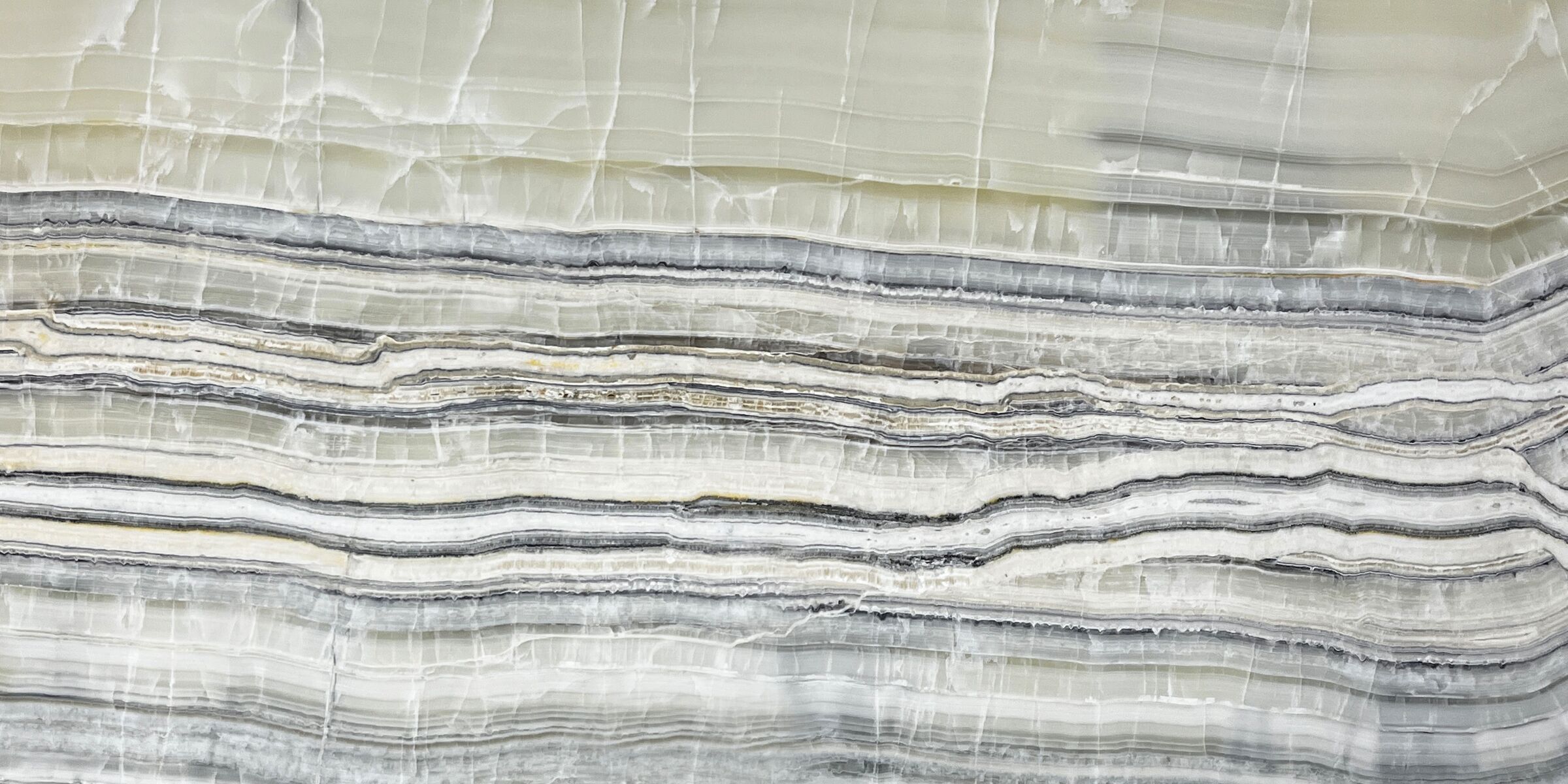Onyx is a type of natural stone that is often used in high-end home design projects, particularly for countertops. Onyx is a metamorphic rock that is formed from layers of mineral deposits that have been compressed and heated over time. This process creates unique and distinctive patterns, making each piece of onyx completely one-of-a-kind.
One of the main advantages of using onyx for countertops is its beauty. Onyx comes in a variety of colors and patterns, including white, black, red, and green. It can also be backlit to create a stunning, ethereal effect. This makes it a popular choice for those looking to add a touch of luxury and elegance to their home.
Onyx is also known for its durability, making it a practical choice for countertops. Onyx is a hard stone that is resistant to scratches and stains, and is also heat resistant. This means that it can withstand the daily wear and tear of a kitchen or bathroom without showing damage.
Onyx is also a unique and exclusive material, which makes it a highly sought-after option for those looking for something truly special for their home. This exclusivity and rarity also make it a material that can add value to a property.
When it comes to cost, Onyx can be more expensive than other natural stone options like granite and marble, which is another factor to consider. The cost will also depend on the type and color of onyx you choose, and the size and thickness of the slab.
When it comes to installation, Onyx is a delicate and brittle material that requires a skilled and experienced professional to install it properly. Onyx is also a translucent material, which means that it is important to consider the lighting in the room where it will be installed. If the room has poor lighting, the Onyx countertop may not appear as vibrant or spectacular.
Another important aspect to consider when using Onyx for countertops is the environmental impact of the quarrying and transportation process. Onyx is quarried in several countries, including Mexico, Pakistan, and China, and shipping it to other countries can have a significant environmental impact. Therefore, it is important to consider the source of the Onyx and ensure that it is being sourced sustainably. Additionally, consider using local stone suppliers, as this can reduce the carbon footprint of the transportation process.
It’s also worth noting that Onyx is a relatively soft stone, and can be easily scratched and damaged. So, it’s not the best option for high traffic area or for kitchens with heavy use. It is best used in low-traffic, low-moisture areas such as bathrooms, powder rooms, and accent walls.
However, Onyx countertops also require proper care and maintenance to ensure they last for many years. It is important to seal Onyx countertops to protect them from stains, and regular cleaning with a mild detergent and warm water is also recommended. It is also important to avoid cutting directly on the surface of the Onyx countertop, as it can scratch or damage the surface.
In conclusion, Onyx is a beautiful, durable and unique natural stone that can make a stunning addition to any home. Its luxurious appearance, practicality, and exclusivity make it a popular choice for countertops, particularly in high-end home design projects. However, it is also important to consider the cost and maintenance when deciding to use Onyx for countertops.

